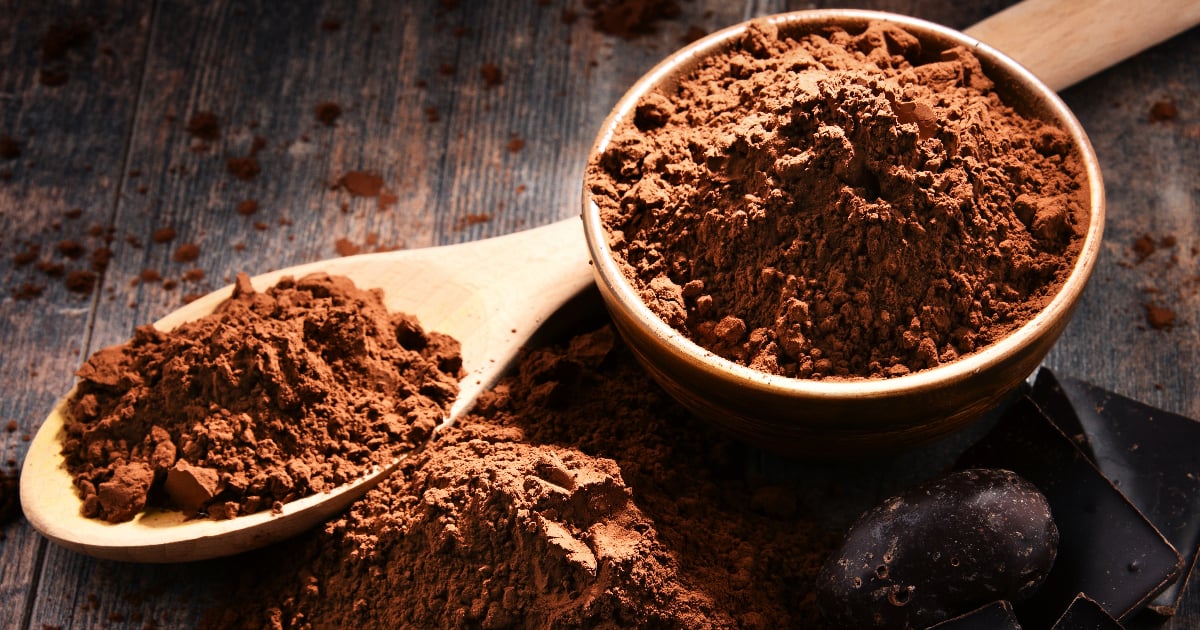Cocoa powder and baking cocoa sound similar, but they actually have some key differences.

Understanding how these two chocolate ingredients vary is important for choosing the right one for your baking projects.
Processing Method
The first major difference is in how cocoa powder and baking cocoa are processed.
Cocoa powder starts from fermented, dried, roasted cacao beans that get pressed to remove 75% of their natural cocoa butter. What's left is ground into a fine, smooth powder. Minimal processing preserves more intense chocolate flavor and nutrients.
Baking cocoa undergoes an extra alkalization process, getting washed in potassium carbonate. This neutralizes acidity, darkens color, and gives it a milder cocoa taste. Oreo cookies famously use baking cocoa. The Dutching process can also mask poor bean quality, meaning baking cocoa is sometimes seen as lower grade than cocoa powder.
Flavor and Color
Flavors and colors of cocoa powder vs baking cocoa diverge due to production methods.
Unsweetened cocoa powder retains a reddish-brown color. It has pleasing fruitiness with sharp acidic bite and extremely concentrated chocolate essence. Think tart cherries dipped in bittersweet chocolate.
Dutched baking cocoa turns nearly black after alkalizing. The dark hue looks extra chocolaty, but the taste becomes less complex. Flavor notes skew bitter with a malty, Oreo-esque profile. Sweeteners like sugar and vanilla can enhance overall flavor.
Acidity and pH Levels
Acidity differs greatly between cocoa powder and baking cocoa due to Dutch-processing. This strongly impacts recipes.
Cocoa powder rates from pH 5.3-5.8, quite acidic. Its bursting fruity tartness brightens other ingredients. Acidity reacts with baking soda to leaven baked goods.
Conversely, alkaline washing neutralizes acidity in baking cocoa. The near-neutral pH neither enhances nor hinders rising agents. Instead, baking cocoa partners well with baking powder for lift.
Performance In Recipes
Choosing cocoa powder or baking cocoa for recipes depends on multiple factors. But when leaveners are involved, use the compatible cocoa to ensure proper chemical reactions.
Cocoa Powder
- Works with baking soda
- Adds fruity brightness
- Gives reddish color
- Intense chocolate essence
Baking Cocoa
- Works with baking powder
- Provides deep, dark color
- Mild cocoa taste
- Masks poor bean quality
If no leaveners are involved (puddings, frostings, etc.), either cocoa will work beautifully. Feel free to pick a favorite!
| Type | Flavor | Color | Acidity | Best Use |
|---|---|---|---|---|
| Cocoa Powder | Strong, fruity | Reddish-brown | Highly acidic | Baking soda recipes |
| Baking Cocoa | Mild, malty | Nearly black | Low acidity | Baking powder recipes |
Key Takeaway: Look at a recipe's rising agents to choose compatible cocoa. Cocoa powder suits baking soda, baking cocoa suits baking powder. Either works when no leaveners are in a recipe.
FAQs
What exactly is the difference between cocoa powder and baking cocoa?
The main difference is that baking cocoa undergoes Dutch processing, an extra alkalization step. This neutralizes acidity, giving baking cocoa a darker color and milder flavor compared to the fruity, tart cocoa powder. Processing methods also determine compatibility with recipes - cocoa powder works with baking soda, baking cocoa with baking powder.
Can cocoa powder and baking cocoa be used interchangeably?
Not always. You can safely use natural cocoa powder in place of baking cocoa, since the cocoa powder provides enough acidity for recipes designed for baking cocoa. But substituting baking cocoa for cocoa powder can ruin recipes needing cocoa powder's acidity to react with baking soda and lift properly.
When should you use cocoa powder vs baking cocoa?
Use cocoa powder for recipes leavened with baking soda. Its acidity ensures proper rising. Baking cocoa contains enough neutralizing alkali to work with baking powder instead. If no leaveners are involved, both cocoas can shine based on personal taste preference.
What recipes work best with cocoa powder or baking cocoa?
Cocoa powder makes excellent cakes, cookies, quick breads, and muffins paired with baking soda. Its bright fruitiness enhances flavor. Baking cocoa yields incredible brownies, frostings, chocolate drinks, and more thanks to effortless melting and rich color. Feel free to experiment with each cocoa!
Does black cocoa powder differ from regular baking cocoa?
Yes, black cocoa is extra-alkalized for an intense near-black color. Its flavor skews bittersweet with very dark chocolate notes. Use black cocoa sparingly or blended with other cocoas since its taste is so strong. It makes wonderful Oreo-style cookies.
Conclusion
Cocoa powder and baking cocoa ultimately originate from the same beans but take different journeys to become staples of the baker's pantry. Understanding what sets them apart unlocks creativity and success when working with chocolate.
Choosing between fruity, tart cocoa powder and mellow, Dutch-processed baking cocoa depends greatly on other recipe components. Factor leaveners, desired flavors, necessary reactions, and personal tastes into your decision when selecting between the two.
Remember, cocoa powder has higher acidity for excellent synergy with baking soda. Baking cocoa contains neutralizing alkali to pair beautifully with baking powder instead. And when no rising agents are involved, use whichever cocoa suits your preferences!

